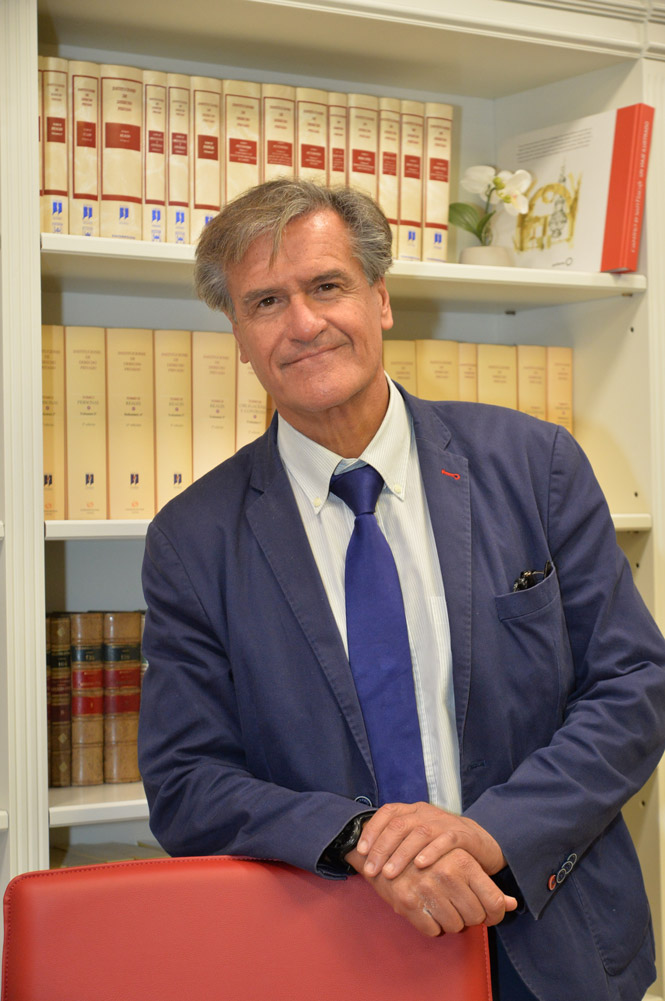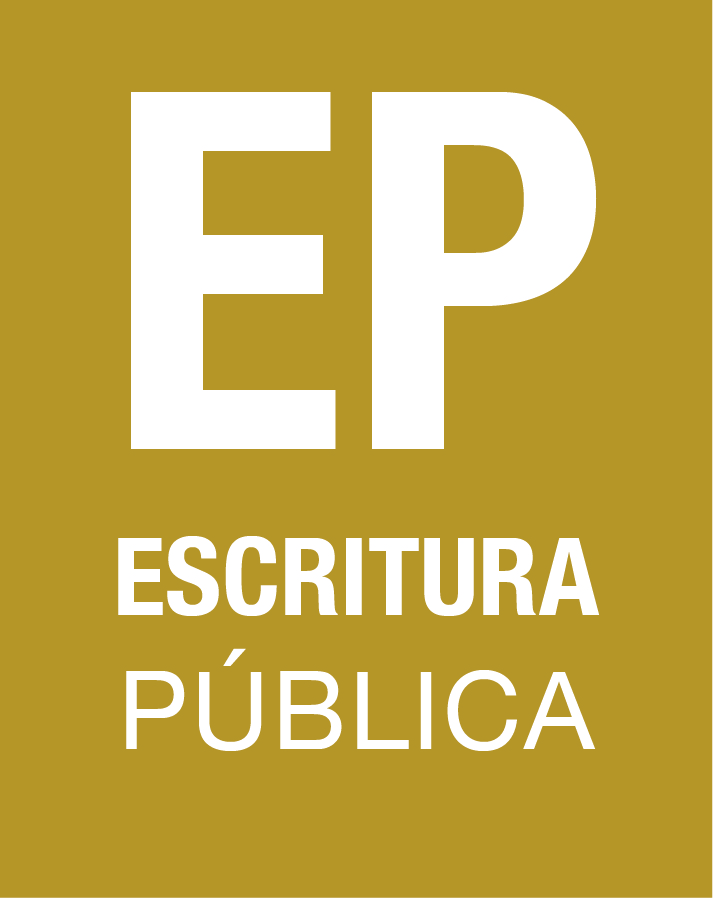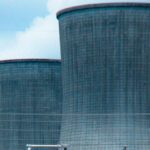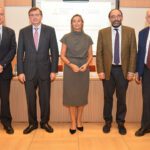ÁMBITO EUROPEO
Juan Fernando López Aguilar,
presidente de la Comisión de Libertades Civiles, Justicia y Asuntos de Interior del Parlamento Europeo
CHAIR OF THE EUROPEAN PARLIAMENT’S COMMITTEE ON CIVIL LIBERTIES, JUSTICE AND HOME AFFAIRS (LIBE)
«Debemos actuar unidos ante el hecho migratorio, la guerra de Ucrania o el cambio climático»
“We must act together on migration, the war in Ukraine and climate change”
JOSÉ M. CARRASCOSA
- Mail: [email protected]
- Twitter: @JMCarrascosa

El europarlamentario Juan Fernando López Aguilar repasa para ‘Escritura Pública’ su dilatada trayectoria política, que se inició en 1983 con su ingreso en el PSOE, en la que ha ocupado cargos de relevancia, llegando a ser Ministro de Justicia de España.
La Comisión que preside se enfrenta a situaciones urgentes como la crisis de refugiados o la guerra de Ucrania. A día de hoy, ¿cuáles son las principales líneas de actuación a corto plazo de ‘LIBE’?
La Comisión que presido con honor es la de mayor espectro de competencias legislativas en el Parlamento Europeo. Legisla sobre derechos fundamentales y libertades públicas, las fronteras exteriores de la UE, la libre circulación, el Derecho Penal comunitario y la cooperación judicial y policial, entre otras cuestiones. Asimismo, mantenemos una relación institucional de control con una constelación de agencias de gran calado: Frontex, Eurojust, Europol o la Agencia de Derechos Fundamentales.
Sobre la mesa tenemos un paquete de actos legislativos relativos al sistema común de asilo; el proyecto de justicia digital; al intercambio telemático de información relevante en la lucha contra el terrorismo; y al recientemente aprobado reglamento de prueba electrónica, que supone un paso de gigante para la persecución de la cibercriminalidad, que ha explosionado en tiempo de pandemia. También sobre un reglamento que previene el acoso sexual en la Red.
A su cargo en Estrasburgo se suman las presidencias de otros líderes españoles en el ámbito internacional (Pedro Sánchez, en la Internacional Socialista; Nadia Calviño, en el Comité Financiero y Monetario Internacional, y Josep Borrell, como jefe de la diplomacia europea). ¿Cómo valora esta alta representación de nuestro país en las instituciones globales?
Esas autoridades ejercen responsabilidades ejecutivas de primer nivel que jalonan el indiscutible compromiso español en la integración europea. Quiero poner en valor que, desde la presidencia de Felipe González hasta hoy, España ha estado siempre en el primer vagón de la locomotora europea, remando en la dirección correcta. De nuestro país proceden iniciativas como el Fondo de Cohesión o el Programa Erasmus puesto en marcha por el inolvidable Manolo Marín.
Es miembro del Grupo de la Alianza Progresista de Socialistas y Demócratas, conformado por los parlamentarios socialistas en el Parlamento Europeo. ¿Cómo valoran desde su grupo el ascenso de representantes de la derecha en países como Italia, Hungría, Polonia o Suecia?
Me preocupa el ascenso de la extrema derecha nacional-populista que está en gobiernos como Hungría y Polonia. Son repliegues nacionales, que tienen un componente radicalmente incompatible con la integración europea y el proyecto federal. No existe una respuesta eficaz desde el punto de vista nacional ante el hecho migratorio, la explosión demográfica en África, la guerra de Ucrania, el cambio climático o la renovación de nuestra dieta energética. Tenemos que actuar unidos, como se puso de manifiesto cuando combatimos juntos a la pandemia o estamos haciendo ahora ante la amenaza de un Putin desatado. Es imposible que Polonia y Letonia puedan actuar por sí solas ante Rusia, el país más grande del mundo. Debemos responder juntos; lo contrario de lo que propugna esa extrema derecha.
«EL 80% DE LA LEGISLACIÓN DE LOS PARLAMENTOS NACIONALES ES TRANSPOSICIÓN O DERIVACIÓN DE LA LEGISLACIÓN EUROPEA»
Un reciente estudio (de EUmatrix.eu) le sitúa entre los diez europarlamentarios más influyentes por su contribución como ponente. ¿Puede explicarnos cuáles son las principales funciones de los diputados del Parlamento Europeo?
El Parlamento es una institución única, directamente electiva y democráticamente legitimada por el sufragio universal de 450 millones de ciudadanos europeos en 27 Estados miembros. Es un hecho que el 80% de la legislación de los parlamentos nacionales es transposición o derivación de legislación europea. Tiene especificidades en su procedimiento, que recae intensamente sobre el ponente que dirige cada iniciativa legislativa y su equipo, que cuenta con representantes de otros grupos de la cámara. Por ello, en el Parlamento Europeo priman aptitudes como la personalidad, la capacidad de persuasión, la experiencia o la voluntad negociadora.
«NUESTRO DERECHO COMUNITARIO NO SE REALIZA POR ENSALMO, NECESITA DE LA INTERMEDIACIÓN DE LOS SISTEMAS JUDICIALES Y DE PROFESIONALES CUALIFICADOS COMO LOS NOTARIOS»
Como miembro de la Comisión Especial sobre Delincuencia Financiera, Corrupción y Blanqueo de Capitales, ¿cómo valora la labor del Notariado español en la materia?
Conozco -y reconozco- muy bien esa labor. No en vano la impulsé durante mi mandato como ministro. En ese período obtuve del Notariado un compromiso sobresaliente en la lucha contra el blanqueo de capitales, gracias a la transmisión automatizada de información relevante al SEPBLAC. Esa colaboración permitió a la fiscalía anticorrupción destapar casos sonadísimos de corrupción que trajeron como consecuencia condenas de varios gerifaltes locales. Desde entonces, me consta que ese compromiso notarial se ha mantenido con las herramientas pertinentes; manteniéndose a la vanguardia en la denuncia de operaciones sospechosas indiciarias de criminalidad en, por ejemplo, algunos negocios inmobiliarios.
«ESPAÑA HA ESTADO SIEMPRE EN EL PRIMER VAGÓN DE LA LOCOMOTORA EUROPEA, REMANDO EN LA DIRECCIÓN CORRECTA»
Canario de nacimiento, ha llevado la situación de los damnificados por el volcán de La Palma al Parlamento Europeo, solicitando la activación de fondos de solidaridad. ¿Qué le ha parecido la reacción de algunos profesionales jurídicos, como los notarios, a la hora de recuperar la titularidad de los bienes inmuebles sepultados por la lava?
La erupción del volcán en Canarias se llevó por delante más de seiscientas viviendas, totalmente devastadas, y causó daños materiales a varios millares de ellas. Un daño irreparable, de vida personal y de memoria. A pesar de la encomiable solidaridad de autoridades locales, regionales y nacionales nunca se puede paliar todo lo que siente el que pierde todo. En ese esfuerzo de solidaridad, pude ser testigo en primera línea del trabajo del Notariado. Estuve en La Palma con el decano de los notarios canarios, Alfonso Cavallé -también estaba el decano de Cataluña-, y pude contemplar cómo aportaban soluciones jurídicas e instrumentales para la escrituración de muchas propiedades que no estaban legalmente configuradas por dejadez o por imprevisión; reparando en la medida de sus posibilidades, que no son pocas, parte del daño causado por la lava. Y resalté ese esfuerzo notarial públicamente en declaraciones a los medios de comunicación.
El Consejo de los Notariados de la Unión Europea es la voz de los 40.000 notarios comunitarios ante las instituciones comunitarias. ¿Cuál es la relación de este organismo con la Eurocámara?
La Comisión LIBE legisla sobre garantías legales y seguridad jurídica preventiva, ámbitos en los que el Notariado desempeña una función muy importante. La formación de las profesiones jurídicas es crucial para que el Derecho Europeo arraigue. Nuestro Derecho comunitario no se realiza por ensalmo, necesita de la intermediación de los sistemas judiciales y de profesionales cualificados como los notarios. Por todo ello, mantenemos una estrecha relación y una constante disposición por nuestra parte para cualquier comunicación con el CNUE.
Ha desempeñado su función en el ámbito regional, nacional e internacional. Desde su experiencia próxima a las cuatro décadas como servidor público, ¿cuáles son las diferencias y semejanzas en esos ámbitos de la política?
En cada momento he intentado dar lo mejor de mí mismo. Me gustaría resaltar que el trabajo en el Parlamento Europeo es particularmente absorbente y muy exigente. Servimos a 450 millones de ciudadanos, lo que es muestra de su envergadura y complejidad. Sin olvidar la sofisticación de procedimientos y el carácter multilingüe. Tenemos el desafío de hacer visible esta función. La razón de esta invisibilidad es simple: en parlamentos regionales o nacionales, el sistema mediático está estabilizado y da cuenta de lo que se hace. No ocurre lo mismo en Europa, lo que redunda en la dificultad de conformar una opinión pública o una identidad del espacio público comunitario.
Por último, no se debe olvidar su trayectoria académica como jurista, catedrático y autor -entre otros de una biografía sobre su paisano Juan Negrín-. ¿Qué faceta de sus diferentes actividades le aporta más gratificaciones?
Mi primera vocación, sin duda, es la docente. Soy universitario de formación, vocación y profesión. Intento seguir ejerciendo y acudo con frecuencia a las facultades de Granada y Las Palmas, aunque mi trabajo me impide impartir clases a diario. Continúo estudiando y publicando en revistas académicas. Y patrocino visitas de universitarios y escolares al Parlamento para que conozcan las instituciones comunitarias.
Me complació mucho la publicación de la biografía de Negrín. No fue sólo presidente del gobierno republicano durante la guerra: también fue un visionario, un gran científico -maestro de premios Nobel, como Severo Ochoa- y políglota. Mi paisano fue un gigante de eminencia poliédrica, cuya figura siempre me interesó.
Huella digital
LÓPEZ Aguilar cuenta con su propio perfil en la web del Parlamento Europeo, donde se recogen algunas de sus intervenciones.
Además, dispone de una página personal que presta especial atención a sus artículos de prensa.
Asimismo, no es ajeno a las redes sociales, con espacios en Twitter (@JFLopezAguilar), Facebook e Instagram
(@jfernandolopezaguilar).
Digital footprint
LÓPEZ Aguilar has his own profile on the European Parliament website, which lists some of his engagements.
He also has a personal page, which in particular covers his press articles.
He is no stranger to social media, either, with spaces on Twitter (@JFLopezAguilar), Facebook and Instagram (@jfernandolopezaguilar).

The MEP Juan Fernando López Aguilar talks to ‘Escritura Pública’ about his long political career that began when he joined the Spanish Socialist Workers’ Party (PSOE) in 1983, in which he held important positions before eventually becoming Spain’s Minister for Justice.
The Committee you head up is facing urgent situations such as the refugee crisis and the war in Ukraine. What are the main short-term action points for LIBE today?
The committee I have the honour to chair is the one with the widest range of legislative powers in the European Parliament. It legislates on fundamental rights and public freedoms, the EU’s external borders, free movement, Community criminal law and judicial and police cooperation, among other issues. We also maintain an institutional monitoring relationship with a constellation of major agencies, such as Frontex, Eurojust, Europol and the Agency for Fundamental Rights.
On the table we have a package of legislative measures concerning the common asylum system, the digital justice project, the electronic exchange of relevant information in the fight against terrorism and the recently adopted electronic evidence regulation, which is a giant step in the prosecution of cybercrime, a problem that has exploded since the pandemic. We are also working on a regulation to prevent online sexual harassment.
In addition to your position in Strasbourg we have other Spanish leaders heading areas in the international sphere (Pedro Sánchez, president of the Socialist International grouping; Nadia Calviño, chair of the IMF’s International Monetary and Financial Committee, and Josep Borrell, High Representative of the Union for Foreign Affairs and Security Policy). What do you make of our high representation in global institutions?
These authorities exercise top-level executive responsibilities that underpin Spain’s undisputed commitment to European integration. I would point out that, from the presidency of Felipe González through to today, Spain has always been at the front of the European locomotive, pulling in the right direction. Initiatives such as the Cohesion Fund and the Erasmus Programme, launched by the remarkable Manolo Marín, come from Spain.
You are a member of the Progressive Alliance of Socialists and Democrats group of socialist MPs in the European Parliament. What does the group think of the rise of right-wing representatives in countries such as Italy, Hungary, Poland and Sweden?
I am concerned about the rise of the national populist far-right in governments like Hungary and Poland. They are national backdrops with a component that is radically incompatible with European integration and the federal project. There is no effective response from the national perspective to migration, population explosion, the war in Ukraine, climate change or the renewal of our energy diet. We must act together, as shown when we fought the pandemic jointly and in what we are doing now in the face of the threat unleashed by Putin. It is impossible for Poland and Latvia to act alone against Russia, Europe’s largest country. We must respond together and this the opposite of what the far-right advocates.
“80% OF THE LEGISLATION OF NATIONAL PARLIAMENTS IS A TRANSPOSITION OR DERIVATION OF EUROPEAN LAWS”
A recent study (from EUmatrix.eu) puts you in the top ten most influential MEPs for your contribution as rapporteur. Can you tell us about the main functions of MEPs?
The European Parliament is a unique institution, directly elected and democratically legitimised by the universal suffrage of 450 million citizens across 27 Member States. It is a fact that 80% of the legislation of national parliaments is a transposition or derivation of European laws. It has specific features in its procedure that rests heavily on the rapporteur leading each legislative initiative and his/her team, which has representatives from other groups in the chamber. That is why skills such as personality, capacity for persuasion, experience and negotiating prevail in the European Parliament.
“EU LAW IS NOT DONE BY MAGIC; IT REQUIRES THE INTERMEDIATION OF JUDICIAL SYSTEMS AND QUALIFIED PROFESSIONALS SUCH AS NOTARIES”
As a member of the Special Committee on Organised Crime, Corruption and Money Laundering, how do you rate the work of the Spanish Notariat in this regard?
I am well across the work it does and appreciate it. I promoted it during my tenure as a minister with good reason. During that time the Notariat demonstrated an outstanding commitment to the fight against money laundering thanks to the automated transmission of relevant information to SEPBLAC (Spain’s Financial Intelligence Unit). This collaboration enabled the anti-corruption prosecutor’s office to uncover sweeping corruption and cases that resulted in convictions for several local big fish. I understand that this notarial commitment has been upheld with the relevant tools since then and remains at the forefront of reporting suspicious operations indicative of criminal behaviour, such as in a number of real estate businesses, for example.
You are originally from the Canary Islands and have taken the situation of the people affected by the La Palma volcano to the European Parliament, seeking the activation of solidarity funds. What do you make of the reaction of some legal professionals, such as notaries, in recovering ownership of property buried in the lava?
The eruption of the volcano on the Canary Islands destroyed around six hundred homes. Irreparable damage to personal life and memory. Despite the commendable solidarity of the local, regional and national authorities, you can never alleviate everything that someone who lost everything feels. In this solidarity effort, I was able to witness the Notariat’s work on the front line. I was in La Palma with the head of the Canary Islands notaries, Alfonso Cavallé (the head of the Catalan council was also there), and saw how they provided legal and instrumental solutions for the notarisation of many properties that were not legally configured due to lack of due diligence or lack of foresight, putting all of their not-inconsiderable talents to bear to repair part of the damage caused by the lava. And I stressed this notarial effort publicly in statements to the media.
The Council of the Notariats of the European Union is the voice of the 40,000 EU notaries before Community institutions. What is its relationship with the European Parliament?
The LIBE Committee legislates on legal guarantees and preventive legal certainty, areas where the Notariat plays a very important role. Training the legal professions is crucial for European law to take root. EU law is not achieved by magic; it requires the intermediation of judicial systems and qualified professionals like notaries. For all those reasons we maintain a close relationship and are always available for any touchpoints with the CNUE.
You have performed your role at the regional, national and international levels. From your almost four decade-long experience as a public servant, what are the differences and similarities in these areas of politics?
I have endeavoured to do my best at all times. I would emphasise that the work in the European Parliament is particularly absorbing and highly demanding. We serve 450 million citizens, which speaks to its scale and complexity. Then there is the sophistication of procedures and its multilingual nature. We have the challenge of making this function visible. The reason for its invisibility is simple: in regional and national parliaments, the media system is stabilised and accounts for what is done. That is not the case in Europe, so it is hard to shape public opinion or forge an identity in the Community’s public sphere.
“SPAIN HAS ALWAYS BEEN AT THE FRONT OF THE EUROPEAN LOCOMOTIVE, PULLING IN THE RIGHT DIRECTION”
Finally, there is your academic career as a lawyer, professor and author – among others a biography of your fellow Canary Islander, Juan Negrín. Which facet of your different activities do you find most rewarding?
My primary vocation, without a doubt, is teaching. I am a university man by training, vocation and profession. I try to continue to practice and frequently attend the Granada and Las Palmas faculties, although my work prevents me from teaching daily. I continue to study and publish in academic journals. And I sponsor university and school student visits to Parliament so they can learn about Community institutions.
I was very pleased with the publication of the Negrín biography. Not only was he president of the Republican government during the war, he was also a visionary, a great scientist – a Nobel laureate like Severo Ochoa – and a polyglot. My fellow Islander was a giant of multifaceted eminence and his life and work have always interested me.



